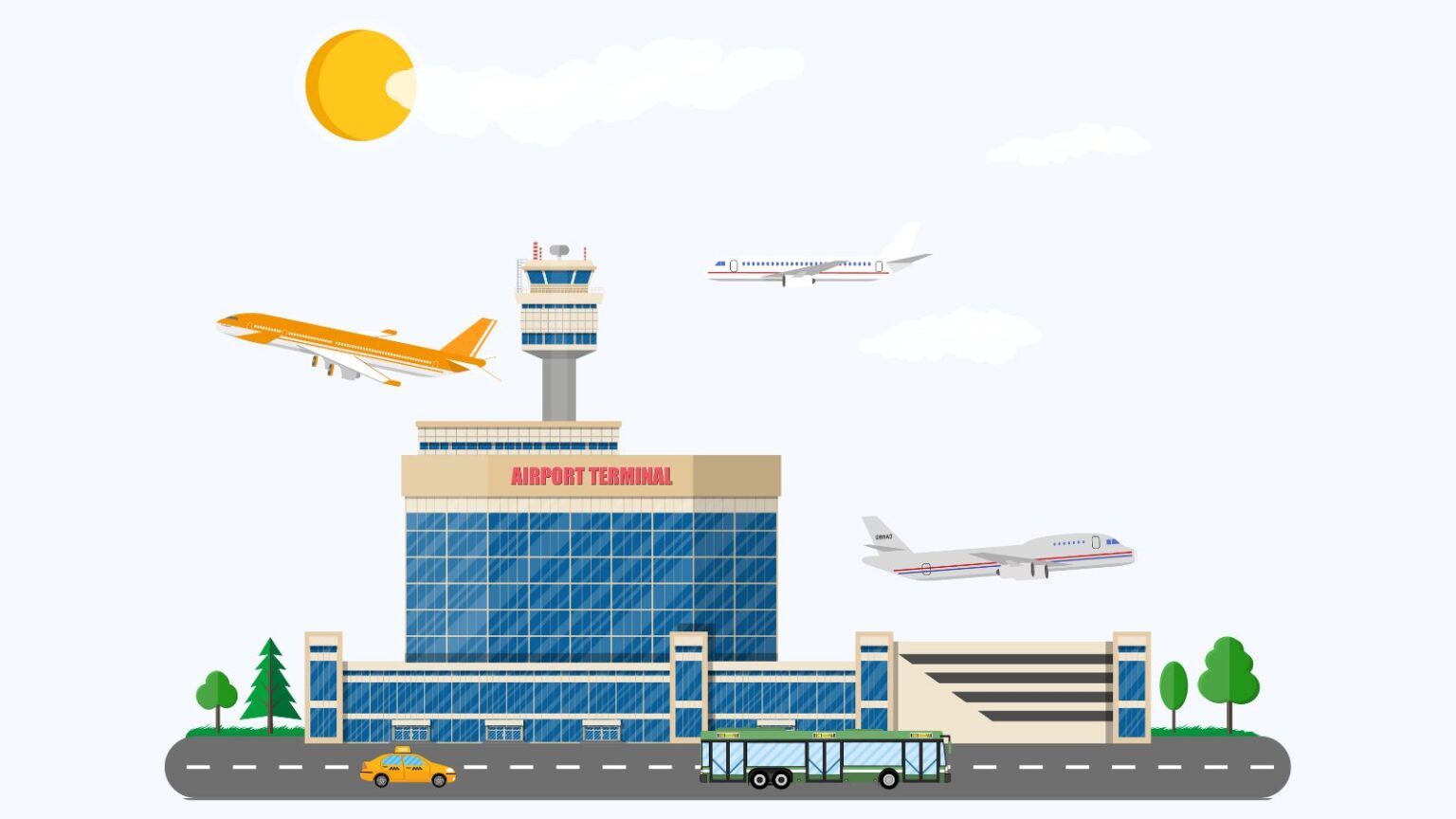Aviation English – A Brief Introduction
For many, the world of aviation has a mystical element; an elevated status born either of ignorance of the simple laws of physics or a misunderstanding of the ‘special language’ of pilots. In my early flying career a friend genuinely asked me whether pilots had to go to a special language school to learn ‘pilot speak’. My answer was, of course, yes (I like to have a little fun sometimes). Another friend, around the same period, pulled up behind me at a petrol filling station.
Unknown to me at the time, they didn’t attract my attention with a greeting; I was unaware of their presence. Later, when I learnt of this, I asked why ever they didn’t say hello. Their answer was that they thought I would be far too busy – because I was an airline pilot. Somehow the point was missed that pilots are human beings like all of us: they have to do the chores as well! And quite how my friend made the link between being in a plane and filling the car with petrol has escaped me ever since!
Two decades later
This was nearly two decades ago, long before the matter of miscommunication became a serious subject, and the universality of English competency was mandated for the international aviation community. Little did I realise that at some time in the future I would be making ‘pilot speak’ my speciality. So the answer to my friend’s question really was ‘yes’, but I just didn’t know it at the time.
The other mystique of flying is the cockpit environment: ‘how do you know what all the switches do?’ My answer, very simply – it’s like getting in your own car. You know where every switch and control is, what it does, and when to use it; almost without thinking. So it is in an aeroplane. The danger here is that one can become so familiar with routine operations that mistakes are made because of complacency.
Flying and speaking
This is also the case with language. We speak our first language without thinking, it’s natural. When we try to learn a new language we are stretched; the brain using massive processing power to remember words, structure, form, expression and intonation. This is very high-end processing as we can’t speak and do complex tasks at the same time. Watch an inexperienced crew training in a flight simulator: when the workload becomes excessive the verbal communication stops; we can’t handle it. So, faced with two pilots, one a native English speaker, the other not, what happens when they are under intense pressure in an emergency scenario?
Answer: we use a pilot who understands the pressures of the job, to teach the English that will be needed. As a former pilot I have the mindset; I understand the motivating forces behind the inexperienced student pilot. And as a qualified English teacher I have the skills to develop the students’ language in a meaningful context.
Departure or take-off?
Hands up those in the class who understand the difference between departure and take-off. I am sure there will be a Hollywood movie somewhere glamorizing pilots in control of a shiny jet acknowledging instructions from air traffic control (ATC) and saying they are ‘ready for take-off’. If you are an aviator you will know this is possibly the worst (and most dangerous) phrase that could be uttered by a crew.
Why? Any phrase which is what’s called a clearance, means that an action has been approved and this is given only by ATC. Any clearance which may have ambiguity between one action and another may mean confusion. For instance: if ATC said ‘SpeedAir 007 confirm ready for take-off?’ what does this mean? You may think, yes, we’re ready to go. The danger here is that the flight crew may only hear the ‘confirm take-off’ and acknowledge this in the read back ‘SpeedAir007 confirm take-off’. There is an enormous difference!
The difference
The first is asking whether the plane is ready, the second is a confirmation that the aeroplane is about to get airborne and that the crew are initiating the take-off roll. This potential miscommunication opportunity led to a number of accidents many years ago and subsequently the phrase ‘take-off’ was limited exclusively to the actual take-off clearance. Now the phrase ‘take-off’ is never used except for the take-off clearance –period.
In all other communications before the aeroplane is allowed to roll down the runway the word ‘departure’ is used. So in the case above the correct phraseology from ATC would be ‘SpeedAir007 report ready for departure’. If ready the crew would reply ‘SpeedAir007 ready for departure’. At this point ATC would clear the aircraft to line up on the runway and only then when all checks are complete etc would the clearance ‘SpeedAir007 cleared for take-off’ be given. No ambiguity.
The vital importance of clear communication
At this point you will have either fallen asleep or wondered how much more of this sort of thing there is in aviation English! Answer: lots! It is absolutely crucial that aviation English students fully understand that each non-standard word or phrase can potentially lead to a miscommunication event. Even the way numbers are spoken: I’ve heard senior training captains use letters instead of numbers. Take the call sign above: ‘SpeedAir007’. This should be spoken ‘speed air zero zero seven’. The temptation for lazy pilots is to say ‘speed air double-o-seven’ (corny I know, but I wanted to maintain the movie theme!). Not correct and bad radio telephony (RT).
Meaningful context and aviation English
So meaningful context has a new dimension in aviation. Words and phrases we use in general English take on very specific roles and this has to be drilled. Not the sort of drilling we may have learned in school:
I’m sure we can all remember language classes comprising boring drudgery; repetition of verb conjugations and listing numerous endings of pronouns. Then, trying to speak the language by sifting through a mental spread sheet of tables to find the right word endings. This is not how our brains work. We remember by stories, linkages, visualisations, immersion, trial and error – just having a go; accepting that we will make errors.
Practice for aviation English students
For aviation English students this may mean practicing radio telephony scenarios; possibly using real experiences and developing them into class-based exercises. My English students are encouraged to engage, enthuse, formulate their own arguments and build confidence by presenting their views to others in a class. They are unaware that by doing their own teaching they are retaining around 85% more language than if they were sitting in a lecture. They are also learning a very important lesson in cockpit communication: don’t be afraid to speak up, even if you feel reticent like my friend at the petrol station!
Accidents happen
It is sad, but historically accidents have resulted from a junior pilot not having the confidence to make a challenge when in the company of a senior, very experienced, captain. Probably the most famous example of this was the collision between the aircraft of flights Pan Am 1736 and KLM 4805 in Tenerife in 1977.
The KLM captain was a training captain with considerable experience and the FAA (Federal Aviation Administration) accident report noted:
“that perhaps influenced by the KLM captain’s …great prestige, making it difficult to imagine an error of this magnitude on the part of an expert pilot, both the co-pilot and the flight engineer made no further objections [to commencing the take-off roll without proper ATC clearance].”
The linguistic issues I mentioned above also contributed to the enormous loss of human life. Poor radio technique; confusion over taxiways; ambiguous use of the term ‘we’re now at take-off’, all degraded the situational awareness of the pilots in both aircraft.
If you wish to read the transcript of the exchanges between the pilots and air traffic controllers please look at: it is riddled with examples.
Of course a lot of lessons were learnt from this disaster; it influenced many operational procedures we see today. But from a safety perspective we must never lose sight of the importance of linguistic discipline.
I hope this has taken a little of the mystery out of aviation – after all, it is another world, but it does still obey the normal laws of physics and use of the English language.







